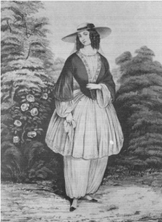Glen
Moderator
I too like Belgican, or perhaps Belgic or Belgaen.
The Dutch Republic sometimes styled itself as "Belgic Federation"...
Good, good, yes.
I too like Belgican, or perhaps Belgic or Belgaen.
The Dutch Republic sometimes styled itself as "Belgic Federation"...
Keep them! Make it sort of the Mexican version of Sewards Folly - a seemingly useless and pricey endevour made purely for prestige that over time is revealed to have been wise beyond thier years. If sea traffic is anywhere near what it was OTL, if not higher due to what looks to be a slightly better off world, all three canals would be put into high usage well before, say, the OTL 1950s.
Also, with Japan balkanized and China stabalized, might that effect immigration to the USA? Maybe instead of OTL where the Chinese were the majority and Japanese the minority of asian immigrants, in the DSA-verse, we will see most of the USA's asian immigrants come from Japan with a smaller stream of Chinese immigrants.
In both regards, what do you think?

I like how you make fascism sound all warm and fuzzy
Oh those rascally Prussian-Polish... being all Commie-Nazi
Oh my god, my cameo created Communism...
Way to go Glen, I was totally betting you'd make my cameo into the Mark Twain analouge. Way to catch me by suprise!
Oh my god, my cameo created Communism...
Way to go Glen, I was totally betting you'd make my cameo into the Mark Twain analouge. Way to catch me by suprise!
Oooh... I like this philosophy,
Korsgaardism (it probably will get a better name alter I guess).
It has an ominous feel to it.
I wonder which states will emerge as Korsgaardist States.



You monster!
Not quite, but....
Hope you enjoyed it. Hey, at least your cameo involved writing something....